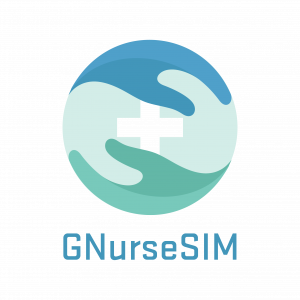85-year-old woman, Helmi, has widowed recently. Her adult daughter lives far away, the distance is 400 km. Helmi lives in a rural area, in a remote aging village, from which to the centre of the nearest village is 20 km. An elderly neighbour lives nearby and visits Helmi weekly. The neighbour has noticed changes in Helmi’s functioning and the conversation with Helmi does not work out as before. A neighbour has contacted Helmi’s daughter with concern.
The municipality will conduct proactive home care visits for all 85-year-old persons to check on how they manage at home. Helmi and her daughter have given permission to make this home care visit. A nurse from home care makes a home care visit to Helmi.
Helmi does not yet have any home care services. Until now, she has independently coped with her daily activities. Helmi’s wish is to live at home as long as possible.
During a home visit, it turns out that Helmi is tired and clearly has memory difficulties. She is incapable of answering every question asked.
The nurse gathers information of client’s cognitive functioning by discussing and observing
– Managing daily activities
– Cognitive functioning Memory (MMSE test)
After the home visit, the nurse contacts the daughter as agreed with Helmi. The daughter becomes concerned about her mother’s situation. The nurse and daughter agree that another meeting will be held after one week, where the daughter will also participate. Also, a neighbor is invited to the next home care visit on Helmi’s wish.
Remind the goals.
Emotion phase:
• Ask about the feelings during the exercise: first the client, then the nurse.
Fact phase
• What happened – describe what happened step by step.
• What went well?
• Feedback from observers on verbal and non-verbal interaction and critical activities.
Analysis phase
• Why specific decisions were made?
• How it should / could be done (ideas are generated by students, the tutor leads to the conclusions)?
• What to do to make it better?
• Students’ questions.
• What do you remember from the exercise (each student says 1 item – preferably everyone should say something different)?
• What should happen (select 3-4 items here that should always be discussed with students regardless of whether they happened or not)?
• Point out step by step what the students’ behavior should look like – exemplary.
• Motivate students to think reflectively while deceiving strengths and correct paths.
Cultural aspects
• How was the client approached as an individual?
• How the nurse demonstrated cultural sensitivity in interaction with the client?
• What is the meaning of own home and familiar environment for the older person and safe living at home?
TOPIC
Proactive home care visit and assessing the cognitive functioning of the older person
PREBRIEFING
Introduce:
– scenario topic
– the procedure that will be practiced in the scenario
– prerequisites (what the student should know)
– learning outcomes to be realized
– what the division of tasks will be
– scenario execution time
REFERENCES, MATERIALS FOR CLASSES
- Dementia. Alzheimer Europe: https://www.alzheimer-europe.org/dementia
- About Alzheimer’s and Dementia. Alzheimer’s Disease International. https://www.alzint.org/about/
- Mini-Mental State Examination (MMSE): https://www.dementiacarecentral.com/mini-mental-state-exam/
PREREQUISITES
- Theoretical studies of gerontological nursing.
- The student has knowledge of changes in the functional capacity of older people.
- The student has knowledge of symptoms of memory disorders.
- The student has the ability to encounter the older person and interact with him/her.
INTRODUCTION
85-year-old woman, Helmi, has widowed recently. Her adult daughter lives far away, the distance is 400 km. Helmi lives in a rural area, in a remote aging village, from which to the centre of the nearest village is 20 km. An elderly neighbour lives nearby and visits Helmi weekly. The neighbour has noticed changes in Helmi’s functioning and the conversation with Helmi does not work out as before. A neighbour has contacted Helmi’s daughter with concern.
The municipality will conduct proactive home care visits for all 85-year-old persons to check on how they manage at home. Helmi and her daughter have given permission to make this home care visit. A nurse from home care makes a home care visit to Helmi.
Helmi does not yet have any home care services. Until now, she has independently coped with her daily activities. Helmi’s wish is to live at home as long as possible.
During a home visit, it turns out that Helmi is tired and clearly has memory difficulties. She is incapable of answering every question asked.
The nurse gathers information of client’s cognitive functioning by discussing and observing
– Managing daily activities
– Cognitive functioning Memory (MMSE test)
After the home visit, the nurse contacts the daughter as agreed with Helmi. The daughter becomes concerned about her mother’s situation. The nurse and daughter agree that another meeting will be held after one week, where the daughter will also participate. Also, a neighbor is invited to the next home care visit on Helmi’s wish.
CURRENT CLINICAL CONDITION
85-year-old woman, has widowed recently, lives alone in a rural area. Adult daughter lives far away. Neighbour visits weekly and has noticed chances in clients’ functioning and memory.
INTERVIEW
The student gathers information of client’s by discussing and observing:
– Managing daily activities
– Cognitive functioning, memory (MMSE test)

